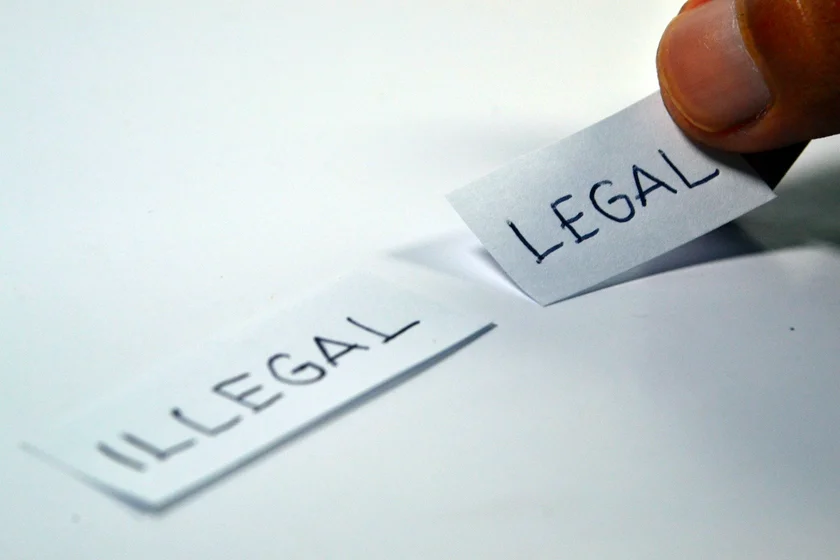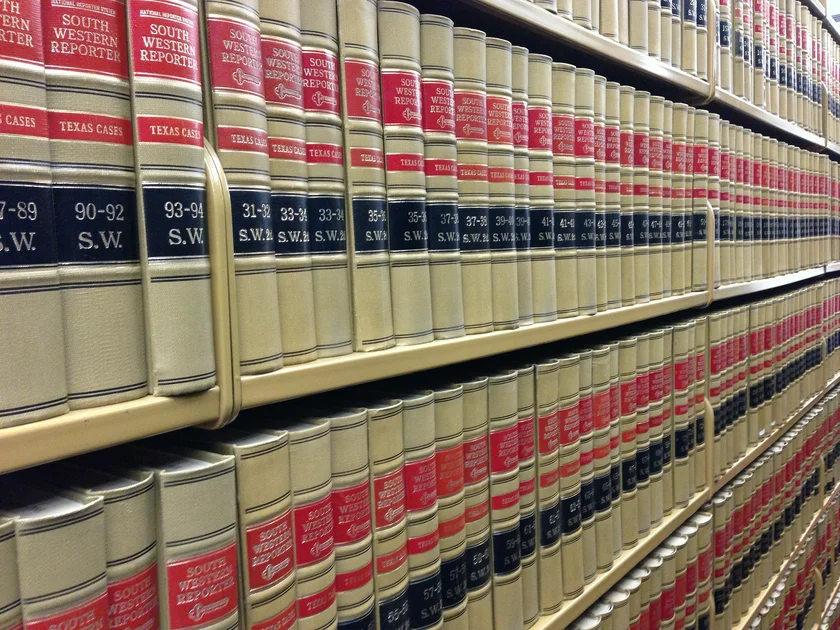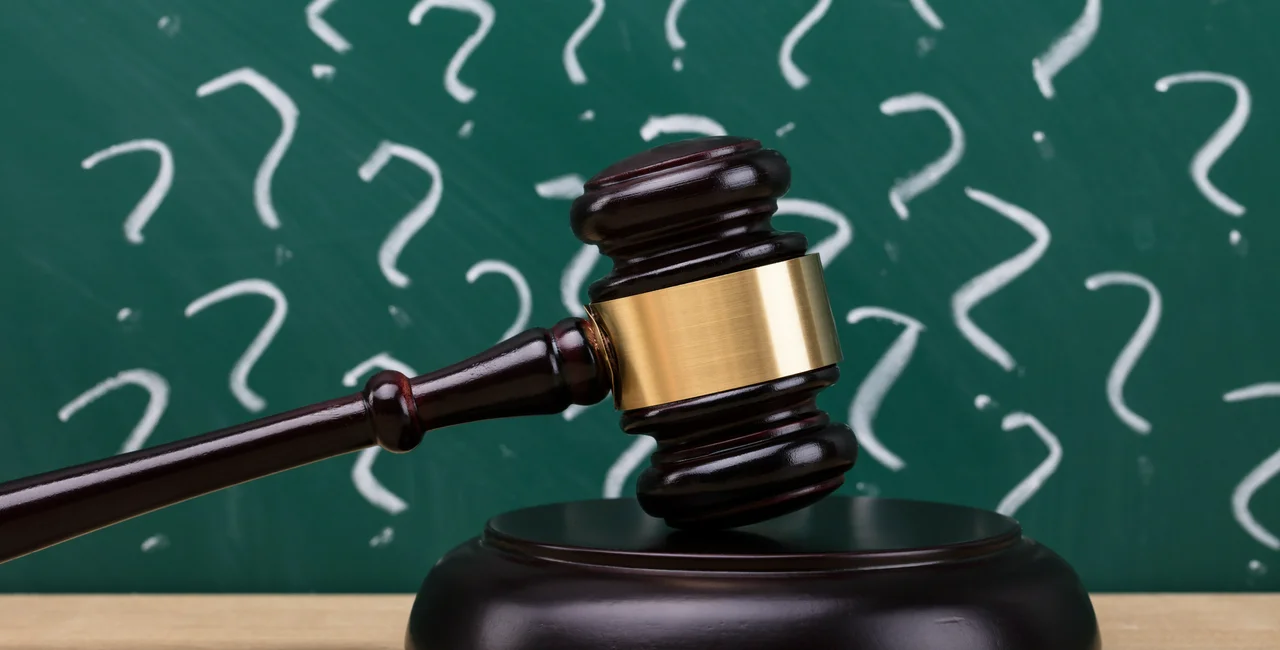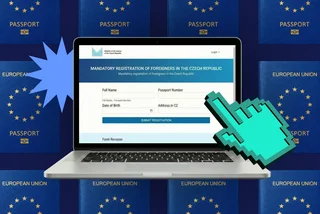When it comes to dealing with legal challenges in the Czech Republic, lawyers are typically called too late in the game with most people seeking help when the problem urgently needs to be solved.
The quicker, and ultimately cheaper solution is developing a relationship with a lawyer early on, one who can help those who are unfamiliar with the Czech legal system -- and language -- review employment contracts, rental agreements, or paperwork involving real estate acquisitions or vehicles purchases to avoid future legal issues.
We spoke to Prague-based attorney Pavol Mlej who helped us put together a quick cheat sheet to the Czech legal system as well as some tips for how to respond to the most common legal problems faced by expats in the Czech Republic and how to choose a good lawyer for any set of circumstances.
The most common legal problems faced by expats

Problems most frequently arise due to language issues, Mlej told us. Signing a contract in the Czech language when you don't completely understand the text can lead to confusion and legal troubles down the road.
Problems also arise when a foreigner expects laws to work the same way they do in their native country. Even basic laws can completely differ in the Czech Republic.
In fact, Mlej says that this is one of the most common reasons why foreigners, even those from countries within the European Union, experience legal problems in the Czech Republic.
Expats from certain European countries, the Netherlands, for example, expect that anything pertaining to bureaucracy will be easy while clients from religious cultures often have trouble understanding family law in secular society, for instance, says Mlej.
He adds that moral standards are not the same here as in Western countries and foreigners often don't understand the necessity of securing a written contract instead of a verbal agreement to avoid getting cheated.
Civil proceedings
By far the most frequent legal problems faced by expats involve disputes with a landlord over a lease, or issues with employment contracts, labor law, or purchase contracts. Disputes over contracts and leases typically lead to civil proceedings. The court system protects subjective rights in civil proceedings in a manner prescribed by law.
Criminal proceedings
Criminal proceedings, where the courts decide on guilt and punishment for criminal offenses, are less common. These types of cases involve issues surrounding drug possession, problems related to owing money to a creditor, and less often problems related to insolvency procedures, or failing to file legally-required paperwork for taxes. Foreigners may also find themselves involved in administrative justice, which involves minor offenses like traffic accidents or violence connected to public drunkenness.
How does the Czech legal system work?

Before starting a lawsuit, it's important to have an overview of the Czech judicial system to see what sort of proceedings will apply to your situation.
The Czech judicial system consists of the Czech Constitutional Court and a system of general courts — the Supreme Court, and the Supreme Administrative Court as well as high courts, the regional courts, and district courts.
The entire Czech legal system is based on written law. In most of the cases, the first court appearance — or where the case begins — is the district court, which has territorial jurisdiction according to where the defendant is located.
In some disputes, such as a disagreement over a mobile contract, however, the first contact will be with a public authority, the Czech Telecommunication Office (ČTÚ), for instance.
A Financial Arbitrator resolves disputes in the financial sector between banks, credit providers, life insurance companies, exchanges offices, etc. and their clients. With regards to these disputes, consumers have the right to a legal hearing before a court.
Note that a Financial Arbitrator cannot decide disputes between two financial institutions or two private persons; a complaint concerning payment services, electronic money, money exchange or life insurance may be filed by a consumer or entrepreneur, an individual or legal entity; a complaint concerning other issues may only be filed by a consumer.
Why mediation is typically your best bet
When it comes to civil disputes, people may also opt to seek a settlement out of court through mediation, which in many cases is the best solution for all parties involved.
In the case of family law (e.g. divorce, custody agreements) it's often worth using a mediator up front. Finding a mediator with an excellent knowledge of English and other languages, can lead to an easier resolution of the case is always better than a dispute. The website www.amcr.cz/mediatori lists mediators; a lawyer can also recommend one.
Choosing a lawyer

When hiring a lawyer it is crucial to find a legal representative who is both an expert in the relevant field of law and who has sufficient language skills to speak with the client in their native tongue.
The Czech Bar Association has a list of lawyers on its website www.cak.cz. Here lawyers are listed according to their specialization, location, and language skills.
If a client suspects that a lawyer is not acting in accordance with the law or against morality or ethics, the Czech Bar Association, the statutory supervisory body over the legal profession in the Czech Republic acts as a watchdog, and clients may contact them should they feel their lawyer is not a good advocate. Clients should know that they are not in any way bound to stay with a lawyer.
The court process

The duration of the court process depends on the issues involved in the case, any possible obstruction by some of the parties, and the actual situation in the courts, among other factors. In general, the court that first deals with the case, the court of the first instance, gives a ruling within a few months.
Given the fact that level of bureaucracy is higher in the Czech Republic than in most Western European countries, it is of the utmost importance that clients pay attention to all court documents and keep meticulous records.
If you are a defendant and someone sues you, for non-payment, for example, then not appearing in court due to failure to open important materials relating to the case may lead to the court deciding against you by contumacy court decision.
Appealing the decision
If the first hearing does not end in your favor, an appeal can be submitted. In general, the appeal period for civil cases is 15 days from when the court decision is delivered. Criminal and administrative procedures have different appeal periods.
Missing the appeal period can have a negative impact on your case. The crucial date is when you receive document. If you have a data box, the crucial date is when you open the data box.
If a client is still not satisfied with the appeal court's decision, then in a limited number of cases an extraordinary appeal is possible.
Legal costs and court fees

The court fee is in a most cases 5 percent from the amount concerned in the case, but can differ depending on the type of the court hearing. On top of the court fee, there are the fees for lawyers which can become substantial according to the type of case. You can read more about legal fees in the Czech Republic here.
The best thing is to avoid court hearings in the first place, says Mlej. Carefully read the contracts that you sign and seek guidance if you don’t understand them. If you conduct business here hire a skilled accountant and learn the laws applying to your business sector before you wind up on the wrong end of a dispute.
Legal fees are calculated by the type of the case (e.g.: the amount you are being sued for, the possible amount of punishment in criminal proceedings). This applies if there no deal between an attorney and his client regarding remuneration.
Most lawyers typically prefer to charge an hourly rate roughly between CZK 1,500–5,000 or a flat fee or a fixed fee for a certain legal issue such as drafting a contract, submitting an appeal, or registering changes in a company.
Are you seeking legal support in the Czech Republic? Pavol Mlej is a Prague-based attorney specializing in civil, commercial, and real estate law, and family law. He offers services in Czech, Slovak, English, and German.












 Reading time: 6 minutes
Reading time: 6 minutes 

















